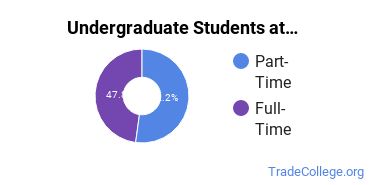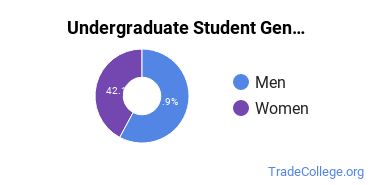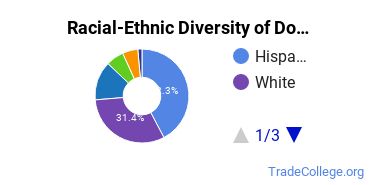Find Trade Colleges
Dodge City Community College Trade Programs
Located in Dodge City, Kansas, Dodge City Community College is a public institution. Dodge City is a great place for students who enjoy small town life.
Featured schools near , edit
Where Is Dodge City Community College?

Contact details for Dodge City Community College are given below.
| Contact Details | |
|---|---|
| Address: | 2501 N 14Th Ave, Dodge City, KS 67801-2399 |
| Phone: | 620-225-1321 |
| Website: | dc3.edu |
Can I Afford Dodge City Community College?
| In State | Out of State | |
|---|---|---|
| Tuition | $1,800 | $2,100 |
| Fees | $3,750 | $3,750 |
| On Campus Room and Board | $7,850 | $7,850 |
| On Campus Other Expenses | $3,496 | $3,496 |
Student Loan Debt
While almost two-thirds of students nationwide take out loans to pay for college, the percentage may be quite different for the school you plan on attending. At Dodge City Community College, approximately 21% of students took out student loans averaging $6,134 a year. That adds up to $24,536 over four years for those students.
Dodge City Community College Undergraduate Student Diversity

Gender Diversity
Of the 709 full-time undergraduates at Dodge City Community College, 50% are male and 50% are female.

Racial-Ethnic Diversity
The racial-ethnic breakdown of Dodge City Community College students is as follows.

| Race/Ethnicity | Number of Grads |
|---|---|
| Asian | 15 |
| Black or African American | 111 |
| Hispanic or Latino | 291 |
| White | 227 |
| International Students | 0 |
| Other Races/Ethnicities | 65 |
Over 12 countries are represented at Dodge City Community College. The most popular countries sending students to the school are Thailand, Canada, and Brazil.
Dodge City Community College Trade School Concentrations
The table below shows the number of awards for each concentration.
| Major | Basic Certificate | Associate’s | Undergraduate Certificate | TOTAL |
|---|---|---|---|---|
| Nursing Assistant/Aide and Patient Care Assistant/Aide | 85 | 0 | 0 | 85 |
| Medication Aide | 33 | 0 | 0 | 33 |
| Electrician | 0 | 0 | 16 | 16 |
| General Cosmetology/Cosmetologist | 0 | 13 | 0 | 13 |
| Building Construction Technology | 0 | 6 | 5 | 11 |
| Welding Technology/Welder | 8 | 3 | 0 | 11 |
| Flight Instructor | 0 | 9 | 0 | 9 |
| Medium/Heavy Vehicle & Truck Technology/Technician | 0 | 2 | 3 | 5 |
| Truck & Bus Driver/Commercial Vehicle Operator & Instructor | 3 | 0 | 0 | 3 |
| Athletic Training | 0 | 1 | 0 | 1 |
| General Electrical & Power Transmission Installation/Installer | 0 | 0 | 0 | 0 |
| Physician Assistant | 0 | 0 | 0 | 0 |
| Radiologic Technology | 0 | 0 | 0 | 0 |
| Dental Hygiene/Hygienist | 0 | 0 | 0 | 0 |
| Other Dental Services & Allied Professions | 0 | 0 | 0 | 0 |
| Medical Staff Services Technology/Technician | 0 | 0 | 0 | 0 |
| Licensed Practical/Vocational Nurse Training | 0 | 0 | 0 | 0 |
| Automobile/Automotive Mechanics Technology/Technician | 0 | 0 | 0 | 0 |
| TOTAL | 129 | 34 | 24 | 187 |
References
*The racial-ethnic minorities count is calculated by taking the total number of students and subtracting white students, international students, and students whose race/ethnicity was unknown. This number is then divided by the total number of students at the school to obtain the racial-ethnic minorities percentage.
More about our data sources and methodologies.
